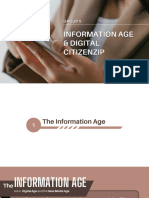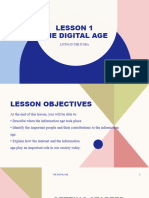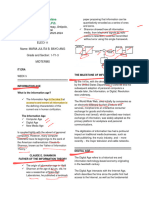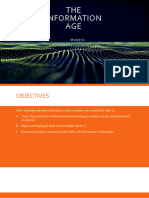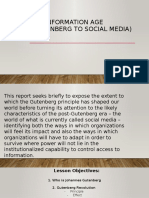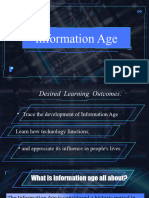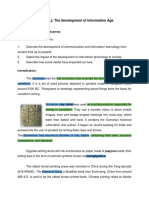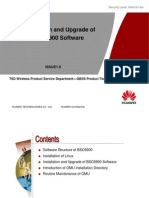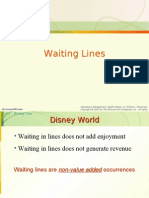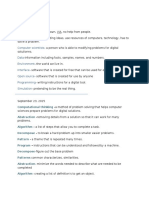0% found this document useful (0 votes)
68 views23 pagesChapter 1 Lesson 3
The document discusses the Information Revolution, highlighting its significant impact on communication, education, entertainment, and social interaction over the past few decades. It contrasts life before and after digital technologies, emphasizing advancements such as the internet and personal computers, which have transformed society and created new challenges like data privacy. The document also encourages reflection on the advantages and disadvantages of these changes, prompting personal experiences related to the Information Revolution.
Uploaded by
llamasfaithcolinCopyright
© © All Rights Reserved
We take content rights seriously. If you suspect this is your content, claim it here.
Available Formats
Download as PDF, TXT or read online on Scribd
0% found this document useful (0 votes)
68 views23 pagesChapter 1 Lesson 3
The document discusses the Information Revolution, highlighting its significant impact on communication, education, entertainment, and social interaction over the past few decades. It contrasts life before and after digital technologies, emphasizing advancements such as the internet and personal computers, which have transformed society and created new challenges like data privacy. The document also encourages reflection on the advantages and disadvantages of these changes, prompting personal experiences related to the Information Revolution.
Uploaded by
llamasfaithcolinCopyright
© © All Rights Reserved
We take content rights seriously. If you suspect this is your content, claim it here.
Available Formats
Download as PDF, TXT or read online on Scribd
/ 23








